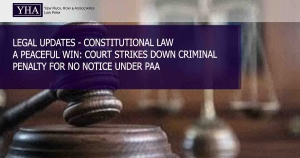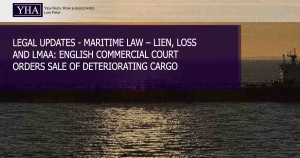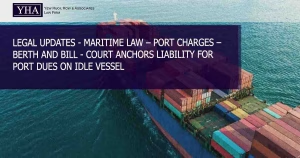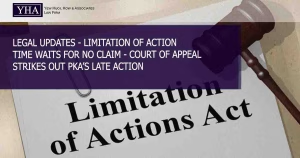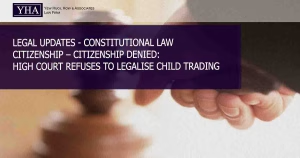
CONSTITUTIONAL LAW – CITIZENSHIP – CITIZENSHIP DENIED: HIGH COURT REFUSES TO LEGALISE CHILD TRADING
In Ow Man Yaw & Ors v Kementerian Dalam Negeri & Anor [2024] 9 MLJ 77, the High Court dismissed an application for Malaysian citizenship brought by adoptive parents on behalf of a child obtained through an agent. The Court held that the child was not “abandoned” within the meaning of section 19B of the Federal Constitution but was instead the subject of a planned arrangement amounting to child trading. As such, the presumption of citizenship by operation of law could not be invoked. The Court further affirmed that applications under Article 15A rest solely with the Federal Government, beyond judicial intervention. The ruling underscores that the best interests of the child cannot override constitutional requirements or validate unlawful conduct.



